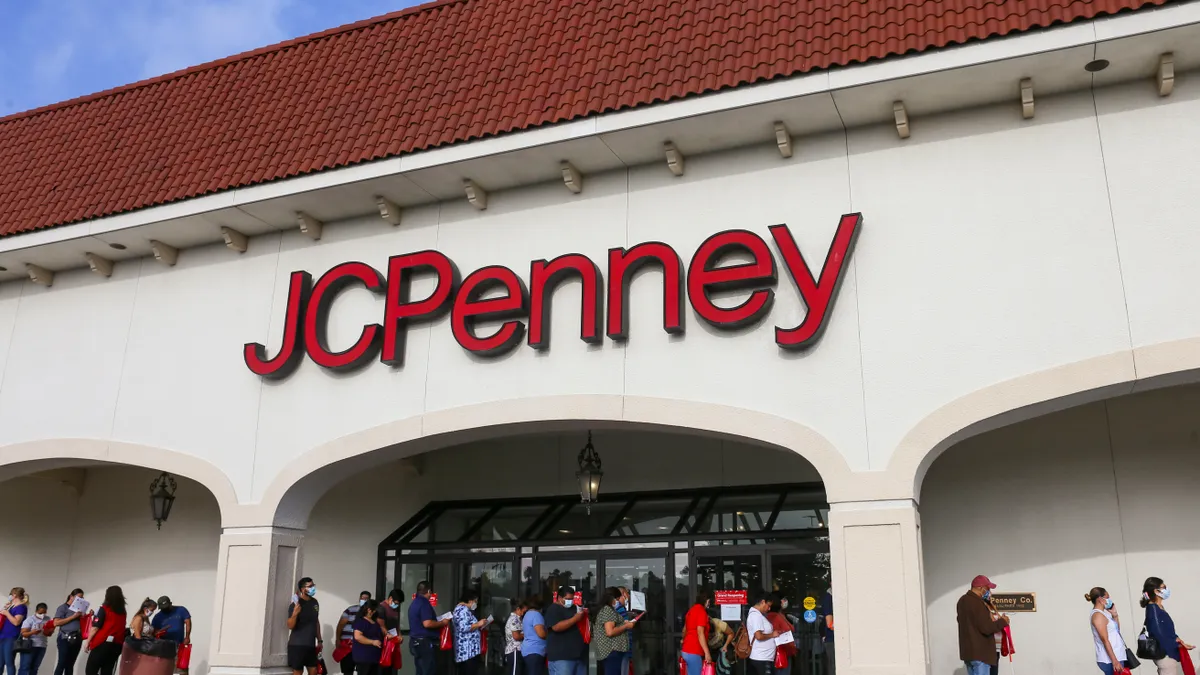Dive Brief:
-
Simon Property Group’s retail investments dragged the company down in the third quarter, reflecting costs linked to J.C. Penney’s beauty launch and Simon’s investment in Reebok, and year-over-year sales declines from its value-oriented banners, CEO David Simon told analysts on Tuesday.
-
Its “better brands,” including Brooks Brothers, Lucky Jeans and Nautica, are “really doing well,” Simon also said. The REIT doesn’t break out specific results from the retailers it owns.
-
The mall business, meanwhile, is benefiting from consumers’ return to shopping in physical stores, he said. Occupancy rose 1.8% year over year to 94.5% as of Sept. 30, as base minimum rent rose 1.7% to $54.80 per square foot.
Dive Insight:
The surging pandemic-era growth in online sales ebbed somewhat this year as consumers resumed a more normal lifestyle, including shopping in physical stores, and that has been good news for Simon Property Group.
“Many have tried to kill off physical retail real estate, and in particular enclosed malls,” David Simon said during a conference call with analysts. “And I need not remind you, when physical retail was closed in COVID, all the naysayers saying that physical retail was gone forever. However, brick and mortar is strong, the brick-and-mortar retailer is strong, and e-commerce is flatlining.”
E-commerce’s percentage of total retail sales is equal to a year ago at 14%, which is higher than it was before the pandemic, however, according to the U.S. Commerce Department’s most recent quarterly e-commerce report.
The company’s investment into retailers — which includes some through its Sparc partnership with Authentic Brands Group and its 2020 J.C. Penney purchase with rival mall company Brookfield — is worth some $2 billion, David Simon said Tuesday. The company is getting a 60% return on the investment, but it would remain valuable whether that rises or falls, he also said.
“We've made an unbelievable investment,” he said. “We are going to have volatility, but it's still a hell of an investment, it’s still been a great thing for us to do, to not only understand ... what it takes for retailers to be successful, but kind of where the future is.”
But the uncertainty introduced by those investments warrants more disclosure, some analysts say.
“In our view, given this level of volatility, we believe [Simon Property Group’s] valuation would benefit from providing retailer investment guidance separately from the core business,” Scotia Bank analysts Greg McGinniss and Nicholas Yulico said in emailed comments. “The core retail leasing business remains healthy despite headline news and noise from [those retail investments]. Given the level of pessimism that appears priced into the stock, we believe this was a good result for the company.”















